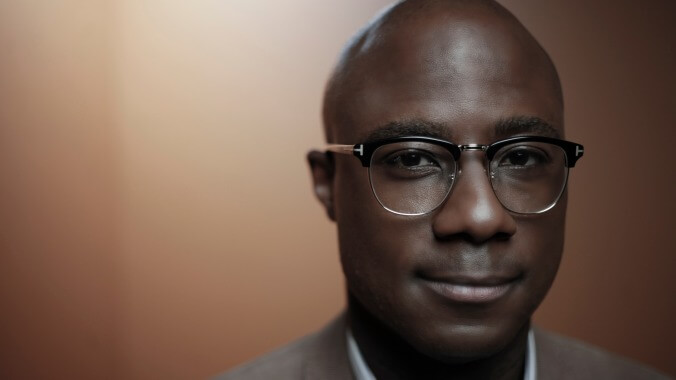They’ve Gotta Have Us offers a moving but unfocused look at Black film history


Originally released in the U.K. in 2019, They’ve Gotta Have Us attempts to connect the long history of Black film with modern moments of Black excellence. The documentary focuses on recent highs like Get Out and Moonlight’s historic Oscar wins and Black Panther’s box office success. These moments certainly become more meaningful when seen through the historical context They’ve Gotta Have Us provides, but little else is added to the long-running conversation around Black film. While They’ve Gotta Have Us repeatedly brings up the importance of “dialogue,” for those who have been engaged in the discussion, the film fails to push boundaries or make any new points.
They’ve Gotta Have Us is focused on proving the value of Black film on the terms of those who have discredited it. Rather than take a chronological look at its growth, They’ve Gotta Have Us jumps between mainstream stereotypes forced onto Black artists and overarching themes and genres. One minute, the series is explaining the burden of black respectability politics felt by actors like Sidney Poitier; next, it jumps ahead to the “Rule Breakers” of the ’80s like Spike Lee and Robert Townsend to “Hood Films,” before doubling back to cover topics like Shaft or Black female filmmakers. While this tactic works to move the narrative along, it leaves a lot of conclusions to the audience’s imagination by failing to dig into the details.
Rather than show us why these rules needed to be broken, They’ve Gotta Have Us actually applauds Black film’s ability to abide by the rules of the system. As artists like Debbie Allen and Barry Jenkins describe the creative process behind films like Amistad (which Allen produced) and Moonlight (which Jenkins wrote and directed), the budget and box office amounts each movie brought in flash across the screen as if to say, “See? It was worth it.” Both of these movies deserve praise for their artistic merit and narratives alone, but They’ve Gotta Have Us chooses to see profitability and white viewership as metrics of success. When discussing Eve’s Bayou, we’re told 50% of viewers were white, as though this proves the film was important. If you still need to be convinced that white audiences can relate to Black films or that Black films make money, They’ve Gotta Have Us provides relevant arguments you can use with people who still say things like, “Well, maybe all the best actors just happened to be white” when diversity issues like #OscarsSoWhite come up.
But Black filmmakers have been making these points for decades, and the success of Black art shouldn’t be equated to how profitable or relatable it is to white audiences. They’ve Gotta Have Us often fails to tell what feels like an entire story because of this limited focus. Spike Lee alone takes up nearly half of the first two episodes, yet the docuseries never touches on any of the fair criticisms Lee faced from other Black filmmakers around issues like sexism. Instead, his narrative is boiled down to his financial success at the box office, the generation he inspired, and the recognition he received from white people for films like Malcolm X.
They’ve Gotta Have Us dedicates nearly an entire episode to Black male filmmakers and actors, while women are relegated to a section titled “Black Women Make Movies Too.” There’s a section dedicated to “Hood Films,” but Set It Off doesn’t even get a mention. Modern filmmakers like Tyler Perry are covered, but Girls Trip (released the year before this documentary) isn’t recognized. Since this is a BBC production, there’s a major focus on the debate surrounding Black British actors playing African American roles. This is certainly an interesting conversation where a lot of complex points have been made on both sides around respectability politics and the global experience of racism. Do Black British actors allow white audiences to put distance between themselves and the racism on screen? Do white directors and producers view Black British actors as less aggressive or “more professional”? They’ve Gotta Have Us presents both arguments and then dismisses them by essentially saying, who cares as long as the performance is good and the movie makes money? This works as a defense of producer Ava Duvernay’s own film Selma, which is discussed at length, but isn’t fair to the argument as a whole.
They’ve Gotta Have Us performs best in its interviews. The late Diahann Carroll discussing her affair with Sidney Poitier and the pride she felt watching him win an Oscar from home is incredibly moving. It’s inspiring to see the late John Singleton talk about the process of making Boyz N The Hood. John Boyega is a joy to witness as he describes the first time he saw himself in a Star Wars trailer. Robert Townsend, however, is a true scene stealer as he brings to life moments like negotiating with lawyers on the MPAA rating for Eddie Murphy’s Raw. Perhaps the biggest takeaway from They’ve Gotta Have Us is that Townsend deserves more opportunities to tell stories on television.
If you still need to be convinced that Black films can connect with global audiences and make money, They’ve Gotta Have Us is great, educational Black History Month viewing. But if you’re hoping to see the complexities and details of Black film history explored and celebrated, They’ve Gotta Have Us falls short. As Black people, we already know they’ve gotta have us, and even most non-Black people that know we’re major, profitable drivers of pop culture. The question is, who is They’ve Gotta Have Us trying to convince?